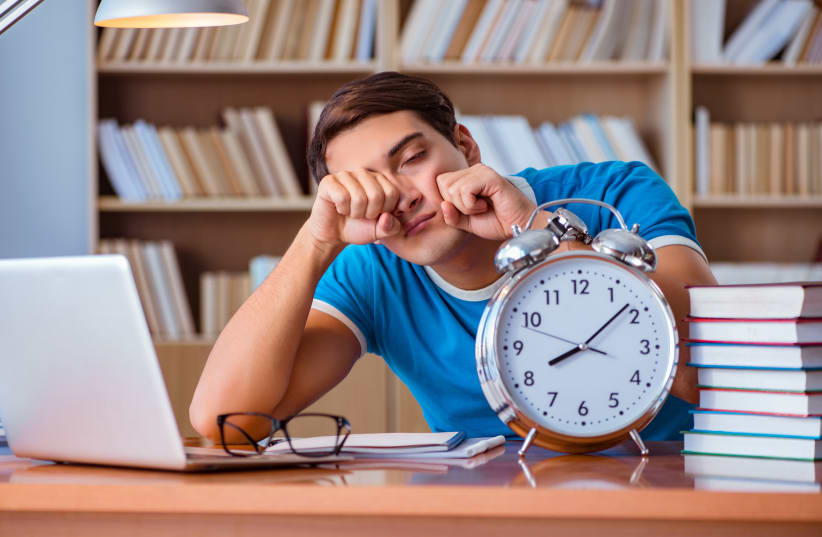What happens to the body and mind when you experience sleep deprivation?
This question was sought to be solved by two teenage boys who conducted a scientific experiment at school almost 60 years ago. Since then this experiment has been publicized worldwide and even reached the Guinness Book of Records. But what exactly happened during these 11 days of sleep deprivation?
In 1963, two teens decided to carry out a science project for school where they would stay awake as long as possible, which eventually led them to the Guinness Book of Records and many news networks in the US and worldwide.
Randy Gardner and Bruce McAllister decided they wanted to explore the effects sleep deprivation on cognitive and physical performance. Gardner was chosen for this ambitious and dangerous experiment.
The experiment could have ended without publicity, yet a local newspaper covered it, which caught the attention of Stanford sleep researcher Dr. William C. Dement.
“Gardner’s parents were afraid that not sleeping would really harm him. Because the question is 'if you don't get enough sleep - will you die?' "It remains unresolved," Dement said in an interview with the BBC.
Previous human trials have shown that lack of sleep has caused paranoia, suspicion and more, while a subsequent experiment that kept domestic cats awake for 15 days proved fatal.
At his parents' request, the experiment on Gardner was supervised by Dement, and another officer from the US Navy's Neuropsychiatric Research Unit in San Diego. The case was recently published on the site iflscience.
The sleep deprivation experiment begins
In order to keep Gardner awake, two of his friends - Bruce McLeister and Joe Marciano - played pinball and basketball with him, prevented him from lying down, and made him talk through the door when he went to the bathroom, in case he fell asleep on the toilet.
The first day of the experiment went well for the 17-year-old teen, but by the second day he was already having a hard time recognizing objects by touch. On the third day he had mood swings and he talked as if he was speaking through broken teeth.The memory defects and first hallucinations began on the fourth day of the experiment."I hallucinated that I was this famous black (American) football player, Paul Lau, from the San Diego Chargers," he wrote in Esquire magazine years later. "My friends thought it was funny, because I weighed about 60 kilograms."
The hallucinations continued the next day, when the boy saw a forest trail in front of him, and not the rest of his house.
“After that point, everything really started deteriorating," he wrote. I wasn’t thinking about breaking records, I just felt low. It was as if someone had taken sandpaper and sanded my brain. My body was fine, but my brain shut down. "
Over the next few days, his speech deteriorated, he swallowed words, his speech slowed down, and his memory became blurry. He started sentences, then stopped in the middle, or he lost his train of thought. However, he still managed to play ping pong. Like others who have suffered from insomnia, he experienced paranoia, too.
On the last day of his experiment, Gardner couldn’t express himself and needed reminders and ongoing requests to answer each question he was asked, and when he answered he swallowed words and had difficulty speaking.
The tests of his mental abilities ceased very quickly, as he would forget what he was doing. However, he didn’t experience many side effects, and as mentioned he set a new world record after surviving so many sleepless days and nights.
In an interview on the NPR website in 2017, Gardner recounted the experience: "It was crazy, the part where I couldn’t remember things, it was almost like experiencing Alzheimer's caused by insomnia."
The sleep deprivation experiment ends
At 2:00 a.m. on January 8, 1964, Gardner broke the world record.
He went 11 days, i.e. 264 hours, without sleep and there was only one way to celebrate. He was taken to the local naval base hospital where researchers attached electrodes to his head to monitor brain waves and he fell asleep. "I slept a little over 14 hours. I remember when I woke up I was a bit fidgety and irritable but not more so than a normal person,” the child said.So what happened during the experiment? Parts of his brain actually “dozed off” so they could refresh themselves, while parts of him were fully awake and functional. This explains why his body and brain weren’t severely affected.Researchers say that drowsiness is in fact called micro sleep and it describes a period of sleep that lasts a fraction of a second up to 30 seconds. People who experience these episodes can doze off without realizing it and this situation can occur anywhere, whether at work, school or watching TV. Micro sleep can also occur while driving and can be dangerous.